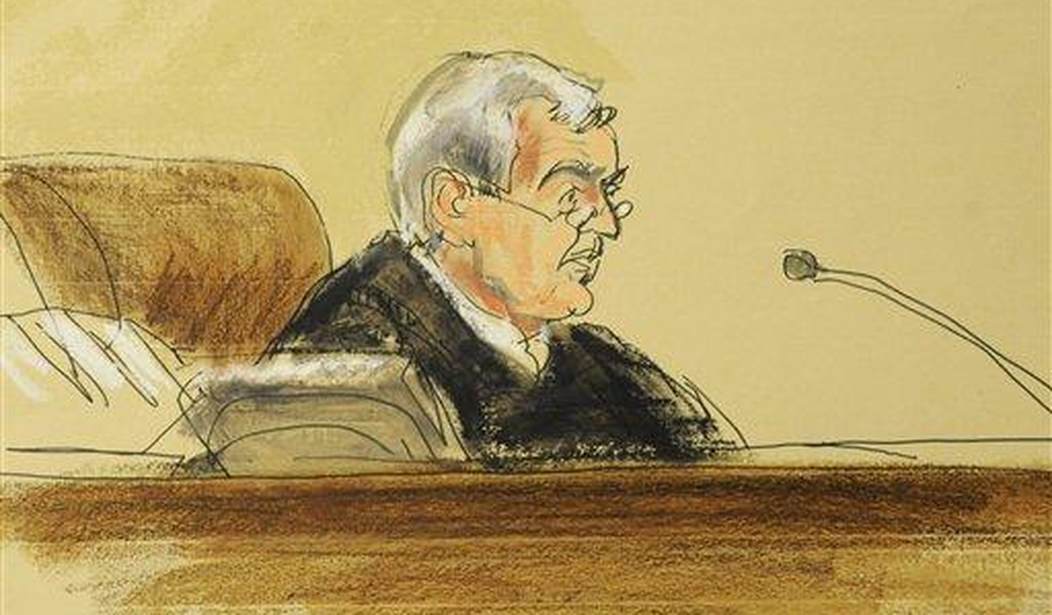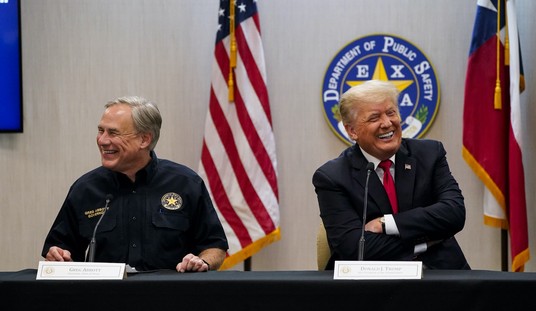Is this a victory? It’s at least a tactical win for Donald Trump, although he’ll pay for it — literally. Judge Allison Cannon appointed former judge Raymond Dearie as special master in the document dispute between Trump and the Department of Justice, and refused a stay by the latter that would have allowed them to peruse the materials in the meantime:
U.S. District Judge Raymond Dearie has been appointed as a special master to go through the documents seized at Mar-a-Lago. pic.twitter.com/qrPrSmAZx6
— CBS Mornings (@CBSMornings) September 16, 2022
Trump’s legal team proposed Dearie as a candidate to be the special master in the high-profile case, and the Justice Department agreed with the selection last week. But the two sides still disagree on whether searching through the highly sensitive classified documents taken by the FBI should be part of the special master’s responsibilities.
Ultimately, U.S. District Judge Aileen Cannon ruled in Trump’s favor and said the special master should examine about 100 documents with classified markings, and said Dearie should prioritize those materials over the more than 11,000 nonclassified documents that were taken in the Aug. 8 search. She denied a bid by prosecutors to allow them to use the seized material in their ongoing criminal investigation before Dearie conducts his review.
Cannon then handed Trump the bill:
“The Court does not find it appropriate to accept the Government’s conclusions on these important and disputed issues without further review by a neutral third party in an expedited and orderly fashion,” Cannon said in reference to the DOJ’s ask related to classified documents.
Cannon said that Trump’s team must cover the costs and the special master will have until November 30 to complete the review of documents that Trump could try to claim executive or attorney-client privilege over.
I don’t think Trump will mind paying this bill. This buys him some time as well as at least an opportunity to make his case about document retention in terms of privilege, at least. That might be a gold mine for Trump if Dearie finds that the material seized by the FBI, especially the unclassified material, falls under attorney-client privilege, and even perhaps if it sets up a court fight over executive privilege.
Dearie might even get a say on the classification dispute, surprisingly enough. Although Cannon did allow the Directorate of National Intelligence to review the classified material for a risk assessment only, she blocked the DoJ from doing anything else with them. Cannon ruled that the dispute over classification standing is a key part of the claim that Trump made in his suit, and assigned Dearie to review those claims against the material seized:
In appointing the special master, Cannon appeared to leave most details of the review up to Dearie, including what type of material might be covered by executive privilege, a loosely defined legal concept that has historically been applied to material about a sitting president’s deliberations, to shield them from another branch of government or the public. In this case, Trump’s lawyers have raised the possibility that Trump, as a former president, could claim such a privilege over material sought by the executive branch. Cannon’s rulings in the case have not made clear how she would define such a privilege.
Cannon’s order Thursday night also seems to imply that it will be in some measure up to Dearie to decide whether the 100 or so documents marked classified are, in fact, classified, and whether Trump can make any privilege claim over them.
That’s an interesting development. Don’t forget that Dearie served as a FISA court judge, so he is well acquainted with nat-sec material and handling. In fact, he approved the final surveillance warrant on Carter Page, a point which raised eyebrows when Trump’s legal team nominated him for the special-master post and when the DoJ approved him as well:
Judge Raymond Dearie, a longtime judge for the Eastern District of New York, was among two picks by Trump, alongside two suggestions by the Justice Department, to serve as special master and independently review evidence the bureau had seized from Trump’s Florida resort home.
The choice raised eyebrows because Dearie served as a FISC judge who signed off on the final FISA warrant against Page. The surveillance was eventually ruled to be invalid by the DOJ. …
Dearie, despite being suggested by Trump, has been backed by some critics of the former president to be the one chosen in this case.
Andrew Weissmann, a harsh Trump critic and a former top prosecutor on special counsel Robert Mueller’s team, urged the DOJ to pick Dearie.
Dearie is apparently a straight shooter, but it’s likely he’s not terribly happy about the DoJ’s misrepresentations on that final Page warrant, too. One can see why Team Trump would have suggested Dearie for this role, given his connection to the perjurious presentation by DoJ lawyers and the FBI in that episode. Dearie will fully retire soon as well, which means he doesn’t really have a stake in the outcome either way.
So Trump has at least gained a little breathing space, and potentially more. Yesterday he made a surprise appearance on the Hugh Hewitt show and insisted that he would be vindicated on both privilege and declassification:
HH: And then the last one, Mr. Patel said he witnessed you giving verbal orders to declassify the papers that ended up at Mar-A-Lago. Do you remember making those orders?
DT: That’s correct, and not only that, I think it was other people also were there. But I have the absolute right to declassify, absolute. A president has that absolute right, and a lot of people aren’t even challenging that anymore. …
HH: I want to close on the judges, because I keep telling people the longest-term impact of Donald Trump is what happened on the Supreme Court, but also a 50-plus Appeals Court judges and hundreds of district court judges. One of those district court judges approved your request for a special master in the papers. Now I know something about presidential papers. I actually, I know a lot about the presidential library system. Every former president has papers that should not be with them by accident. Did you take those papers down there after declassifying them intentionally? Or did you have any idea they were there?
DT: Remember this. Remember this. Everything was declassified, number one. And if you look at the presidential, if you look at the act that was passed, it talks about what you can do, what you can’t do, how you negotiate with NARA, and then if you look at what’s running NARA, it’s radical left run, radical, radical left, and then you take a look at Hillary with her 33,000 emails that were deleted, and you take a look at Obama and others, and people say Trump’s gotten treated very, very unfairly. Very, very unfairly. You just take a look.
Dearie’s about to take a very close look. If Dearie disputes that, Trump will have an even bigger political problem, but if Dearie sides with Trump, the DoJ and Biden administration will have an even bigger problem after the raid on Mar-a-Lago. Stay tuned.







Join the conversation as a VIP Member